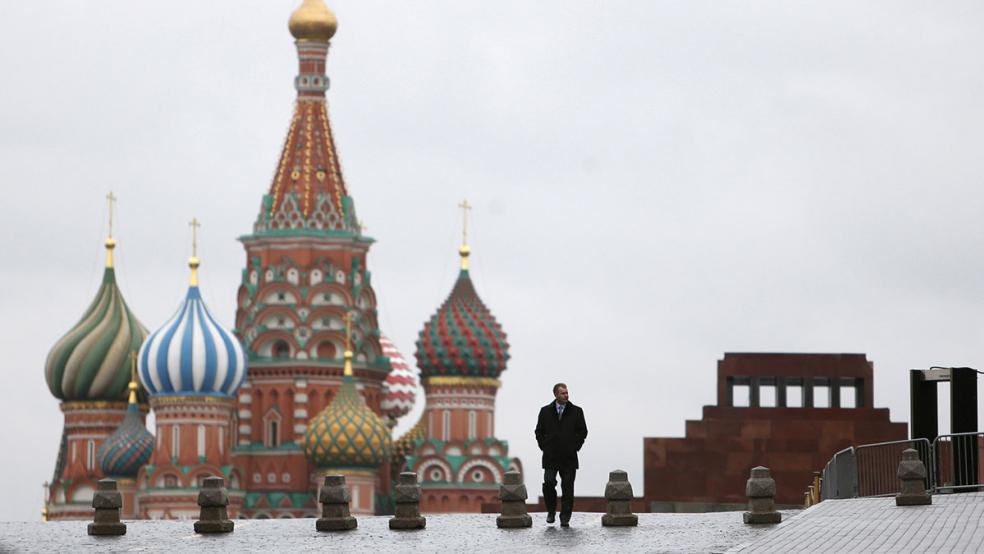Donald Trump, whose Saturday mornings are apparently much freer than one might expect the president’s to be, spent a good chunk of time between breakfast and lunch yesterday rage-tweeting about news coverage of the investigations into Russian interference in the presidential election last year and possible connections between his campaign and that Kremlin-directed effort.
The President, like any other American, has the absolute right to challenge the accuracy of anything he sees in the press, and there isn’t a reporter deserving of the job who would argue otherwise. But the Trump White House is looking increasingly desperate to deflect attention from the inquiry to the point where claims of innocence start to have the opposite effect of the one intended.
Related: Flynn’s Immunity Request May Not Be the Bombshell Everyone Thinks It Is
The president protests too much.
Trump began Saturday morning with an attack on NBC News and anchor Chuck Todd.
When will Sleepy Eyes Chuck Todd and @NBCNews start talking about the Obama SURVEILLANCE SCANDAL and stop with the Fake Trump/Russia story?
— Donald J. Trump (@realDonaldTrump) April 1, 2017
He continued, minutes later.
It is the same Fake News Media that said there is "no path to victory for Trump" that is now pushing the phony Russia story. A total scam!
— Donald J. Trump (@realDonaldTrump) April 1, 2017
In recent days, Trump, through White House Press Secretary Sean Spicer, has renewed his claim that former president Barack Obama had him under surveillance during last year’s election, despite sworn testimony from the heads of the Federal Bureau of Investigation and the National Security Agency that this was not the case.
The effort has been aided by House Intelligence Committee Chairman Devin Nunes who last week made a surreptitious visit to the White House to view documents that he said appeared to validate some of Trump’s claims. It would later come out that the documents were provided by the White House staff, something that Nunes originally denied after making a show of hurrying down Pennsylvania Avenue to personally brief Trump on information Trump’s own staff had provided him.
What Nunes appears to have been shown is evidence that intelligence intercepts targeting non-US persons outside the country incidentally picked up conversations by or about associates of the president. In some cases, he said, the identities of those individuals were “unmasked” in reports that were then circulated among intelligence agencies.
Related: Is Nunes Toast? White House Struggles to Explain Who Leaked Intelligence
When US persons are incidentally picked up by intelligence intercepts, their identities are often concealed in reports detailing the findings unless they are relevant to an investigation or are otherwise necessary for analysts to understand what was being discussed. Nunes’ complaint is that he was able to discern the identities of some of the people mentioned in the reports he was shown.
Last week, The New York Times disclosed that some of the reports appear to detail conversations that did not involve the president or his associates but were rather about them -- such as foreign ambassadors discussing plans for gaining influence or access to the Trump White House.
On Saturday, Fox News reported that the person who gave the order to “unmask” names in the reports is a senior member of the Intelligence Community, which sent Trump rushing to Twitter again.
“Wow,” the president wrote, “@FoxNews just reporting big news. Source: ‘Official behind unmasking is high up. Known Intel official is responsible. Some unmasked not associated with Russia. Trump team spied on before he was nominated.’ If this is true, does not get much bigger. Would be sad for U.S.”
Related: House Intel Chair Says Intel Agencies May Have ‘Spied’ on Trump
It was unclear why Trump placed some of the material in quotation marks because he did not appear to be quoting the Fox report verbatim. One of the reporters who wrote the Fox piece, in an interview broadcast on the network, suggested that the incidental collection of information about Trump associates had begun even before Trump won the Republican nomination, and was done for political purposes by the Obama administration.
He did not explain why information from a project ostensibly aimed at discrediting Trump, was withheld until Trump had been elected and sworn in as president.
The tweets came a day after Spicer, from the White House podium, again repeated Trump’s claim that the Obama administration had targeted him for surveillance despite the claims of intelligence officials that this is not true.
In support of the claim, Spicer cited comments by Evelyn Farkas, deputy assistant secretary of Defense for Russia and Ukraine, that she had encouraged her former colleagues to preserve and disseminate intelligence about alleged Russian meddling in the 2016 election.
Related: Former Trump Campaign Chair Worked to ‘Benefit the Putin Government’
Spicer described Farkas’s comments as “devastating” evidence of an Obama administration effort to gather intelligence on Trump.
In fact, Farkas left the administration in 2015, when Trump’s run for president was still widely viewed as a self-indulgent publicity stunt. Multiple fact-checkers have pointed out that Spicer had taken her comments completely out of context.
The efforts by the administration over the past week, with the apparent assistance of Nunes, appear to be an exercise in muddying the waters on the question of whether members of the Trump campaign colluded with Russia in the release of stolen emails that were used to embarrass Democrat Hillary Clinton in the final weeks of the presidential election.
The aim, to all appearances, is to create enough plausible doubt about the investigation to give the president’s supporters the ability to dismiss the possibility that there is real merit to the Trump-Russia investigation.
So far, with public opinion strongly in favor of a continued investigation, it hasn’t been working. But it would be a mistake to discount President Trump’s ability to ultimately bend the political narrative to suit his needs.





